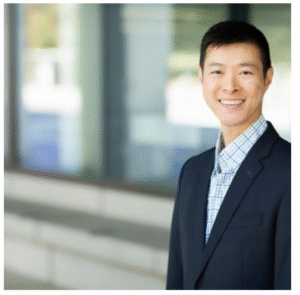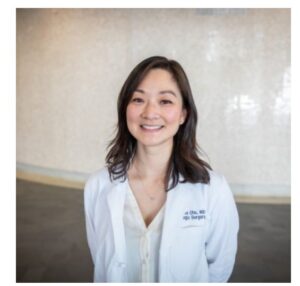Urothelial carcinoma (UC) is the second most common genitourinary cancer, leading to over 16,000 deaths a year in the United States. Despite recent advances, the 5-year survival rate for metastatic UC remains around five to ten percent.

The first FDA-approved antibody-drug conjugate therapy for metastatic UC (mUC), enfortumab vedotin (EV) targets NECTIN4, a protein which is expressed on the cell surface of bladder cancer cells, and is now the front-line, standard of care treatment for patients with advanced urothelial carcinoma in the United States. While EV monotherapy leads to at least a 40% response rate in most patients with mUC, in patients whose malignancy is treatment resistant, meaningful improvement in long-term remissions and overall survival are rare.

To improve treatment rates for these patients, UCSF researchers designed a CAR T cell therapy and combined it with an older class of diabetes drugs called thiazolidinediones, to enhance NECTIN4 expression and make tumor cells more susceptible to NECTIN4-CAR T therapy.
Their research appears September 10 in Nature Communications.
“We sought to understand how cancer cells regulated expression of NECTIN4, and whether we could leverage that information to enhance NECTIN4 expression and increase the efficacy of the CAR T therapy,” said study senior author Jonathan Chou, MD, PhD, assistant professor in the UCSF Division of Hematology/Oncology. “We found that a pathway which typically controls fat metabolism called PPAR gamma, facilitates NECTIN4 expression. Interestingly, we repurposed an old class of diabetes drugs – rosiglitazone and pioglitazone – which stimulate PPAR gamma, to enhance NECTIN4 expression.”
The researchers, led by former UCSF medical student Kevin Chang, MD, had previously found that the expression of NECTIN4 was very heterogeneous. For surface-protein targeting therapies like CAR T cells, the level of the tumor-target dictated how well the therapy worked.
They also tested whether bladder cancer cells that were resistant to one type of NECTIN4-targeted therapy were still sensitive to NECTIN4 CAR T cells. In collaboration with Carissa Chu, MD, assistant professor in the UCSF Department of Urology and colleagues at the Memorial Sloan Kettering Cancer Center, the researchers examined biopsies from patients before starting EV and after progressing on EV, and found that the majority of tumors still retained NECTIN4 expression. By first priming the bladder cancer tumors with rosiglitazone, the researchers were able to increase the efficacy of the NECTIN4 CAR T cells therapy in cell line and animal models.
“By identifying and using a strategy to turn low-expressing tumors into higher-expressing tumors in both EV-naïve and EV-resistant settings, we made the tumor cells more susceptible to NECTIN4-CAR T therapy,” said Chou. “These preclinical results lay the groundwork for further CAR T cell development in bladder cancer and urothelial carcinomas and suggest drug combinations that will expand the therapeutic window of NECTIN4-targeting therapies.”
Additional authors: Henry M. Delavan, Elizabeth Yip, Corynn Kasap, Jun Zhu, Roshan Lodha, Sheng-You Liao, Sarah C. Berman, Alberto Carretero-Gonzalez, Merve Basar, Gamze Gokturk Ozcan, Min Yuen Teo, David B. Solit, Jonathan E. Rosenberg, Hikmat Al-Ahmadie, Cornelia C.K. Ding, Emily Chan, Veronica Steri, Sima P. Porten, Vadim S. Koshkin, Terence W. Friedlander, Felix Y. Feng, John K. Lee, and Arun P. Wiita.
Funding: This work was supported by the NCI/NIH (K08CA273514 to JC and K12CA260225 Career Development Award to CEC (PI: Bergsland), the Bladder Cancer Advocacy Network (BCAN), Young Investigator Award (to JC), funds from the UC Cancer Research Coordinating Committee of the University of California, Grant number C25CR8622 (to JC), the UCSF School of Medicine Dean’s Fellowship (to KC), the Fundación Alfonso Martín Escudero (to ACG) and philanthropic gifts from TS and Sharon Ng and the Speier Family (to TWF). This was supported in part by the University of California, San Francisco Preclinical Therapeutics Core (PTC) and UCSF Helen Diller Family Comprehensive Cancer Center Laboratory for Cell Analysis and Flow Cytometry Core under NIH/NCI award P30CA082103.

